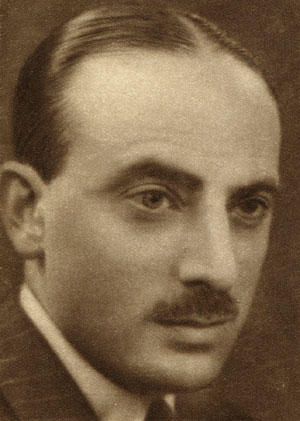Michael Balcon is considered one of the most important figures in British Cinema it was his vision that brought international prestige to Gainsborough in the 20s and 30s. and he was a vigorous spokesman for the industry for most of his career.
Michael Balcon's career began in Birmingham in 1920, where, with Victor Saville he was a film distributor. Within two years they had begun producing feature films in London - Woman to Woman 1923 was the first. He formed Gainsborough Studios the following year. He visited the Ufa studios in Berlin in 1924 ,shortly after marrying Aileen Leatherman, and began a co-production association with The Blackguard that was to last 10 years. German technical staff populated Gainsborough films throught the 20s and early 30s giving them a slick, sophisticated veneer to match any produced in Hollywood, Balcon was aiming for a product of international interest unlike many other British studios in the silent and early talkie era. In 1928 the company came under threat of a takeover by Gaumont-British and this became a reality in 1931, however, Balcon remained joint production chief both at Gainsborough and at Gaumont-British until 1936.
He joined MGM's British production unit but didn't last a year there despite making three excellent films: A Yank at Oxford, Good-bye Mr Chips and The Citadel. In 1938 he joined ATP which soon changed it's name to Ealing Studios.

Balcon c1933